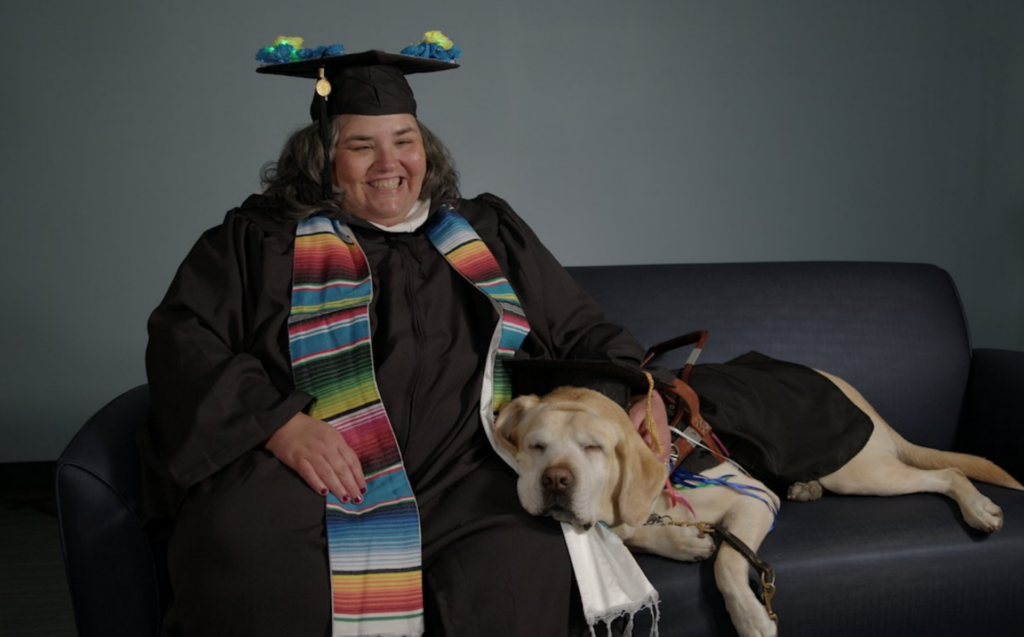We must act now to create more accessible higher education systems for everyone. CHEPP’s recent paper offers policy recommendations for policymakers, institutions, and practitioners.
Today, postsecondary education is more critical than ever to increase economic security. More people across the country are obtaining degrees and certifications than ever before. Institutions of higher education are vying for learners and seeking to provide best in class education and tailored services to many. Yet, higher education remains out of reach for many learners with disabilities due to inaccessibility.
We need swift and decisive action from federal policymakers and leaders at institutions of higher education to create inclusive and accessible higher education systems for learners with disabilities.
We recently published our paper: Online by Design: How Accessibility is Fundamental to Learner-Centered Design. Today, informed by our collaborations with partners in this space, we released a complementary policy supplement. This supplement offers policy recommendations to help institutions, practitioners, and the federal government drive more accessible higher education systems.
Learners with disabilities who enroll, persist, and complete their degrees face enormous barriers to success throughout their postsecondary journey. Jamie Junior, a learner with a disability, navigated motherhood, caregiving, and being a disability rights leader but couldn’t find a college that met her needs until learning about Degree Forward’s partnership with Southern New Hampshire University. For Jamie, flexibility of time and place to complete her degree, along with other wrap-around supports made getting her degree possible.
It is incumbent on higher education to do more to meet the needs of learners like Jamie – and the time to act is now.
The policies outlined in this policy supplement range from institutional and practitioner policies that can be implemented in the short term to organizational policies that will require significant cultural and system-wide shifts. There are also policy changes needed at the federal level – from guidance that would set a roadmap to ideal regulatory changes and updates to federal laws for meaningful and lasting change.
Institutions of higher education can begin using the practical and ready-to-implement recommendations provided by CHEPP. These recommendations provide practitioners and policymakers with parallel paths toward supporting a more inclusive higher education sector. They offer institutions immediate actions to create more accessible systems and adopt more inclusive practices, ultimately driving system-wide policy change and put forward federal policy changes that both require and incentivize robust accessibility systems nationwide.
Built around CHEPP’s framework for learner-centered design, these recommendations focus on driving accessibility and inclusion through higher education’s mission and culture, academic relevance and engagement, learner agency and awareness, and student experience.
For years, leading disability rights organizations such as the National Center for Learning Disabilities (NCLD) and the Association on Higher Education and Disability (AHEAD) have been advocating for more robust accessibility requirements in federal policy to help ensure students have access to higher education. Unfortunately, federal policy changes to improve higher education access remain stalled and institutions of higher education have largely accepted the status quo in how disabled students are being served. CHEPP partnered with a group of disability policy experts and advocates, higher education practitioners, policy leaders, federal policymakers, legal experts, and college students to guide the development of the policy recommendations put forth in this paper.
Institutions must lead the way in demonstrating what is possible when the needs of learners with disabilities are prioritized. Making changes to the higher education system from the inside will not only support learners with disabilities, but make higher education systems more accessible and inclusive for all learners. We hope you will join us in our advocacy.

